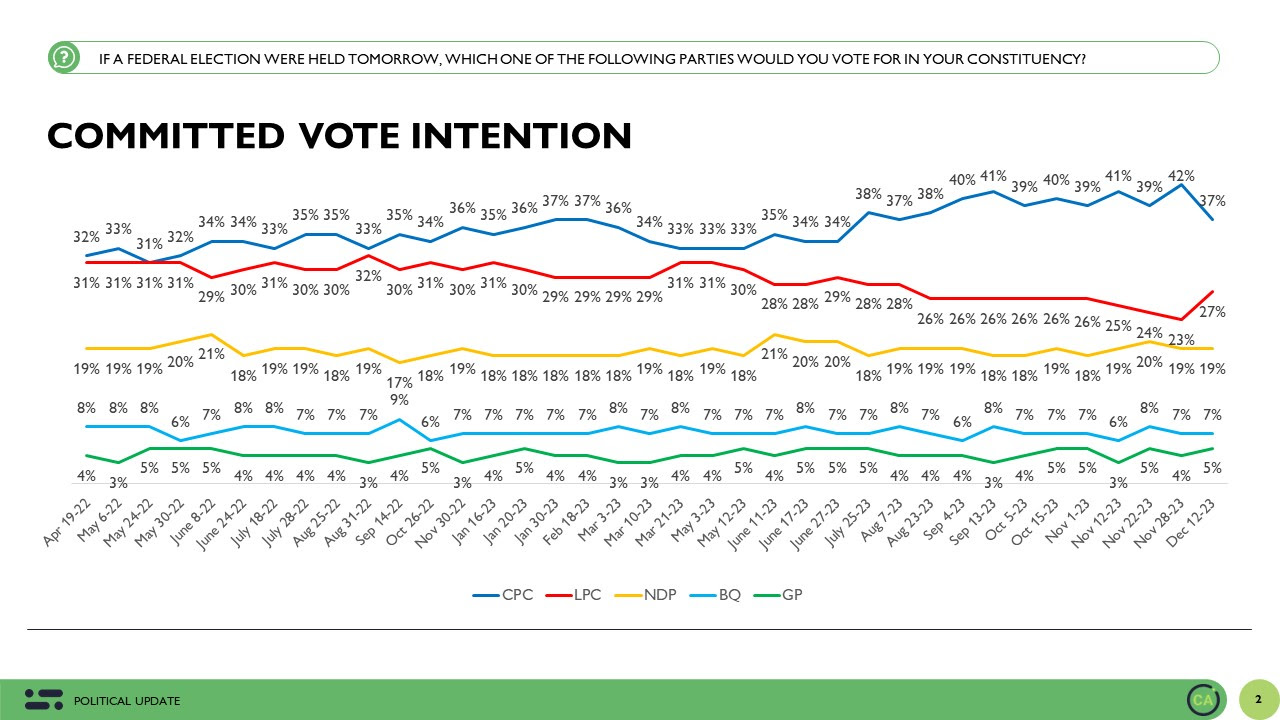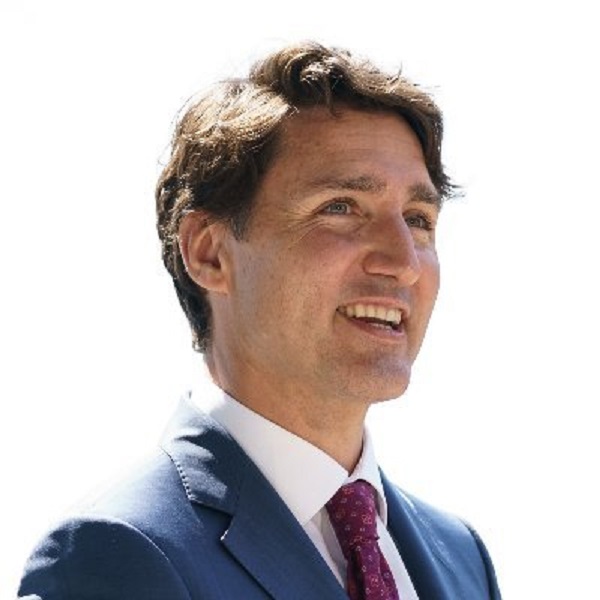AN Abacus Data poll shows that if elections were held today, the Conservatives would secure 37% of the vote, down 5 from the last survey at the end of the November.
The Liberals get 27%, up 4. In just over two weeks, a 19-point national Conservative lead has been reduced to 10 points.
This data comes from a national survey, conducted between December 7 to 12 with 1,919 adults, and finds a substantial shift in federal voting intentions.
According to Abacus Data, for there to be a 5-point drop in Conservative support and a 4-point rise in Liberal vote share, something must be happening around public opinion. The evidence from our survey suggests this shift is likely more about reaction to the Conservatives, and their decisions and behaviour over the past two weeks, than something the Liberals have been doing.
Abacus Data finds that some core metrics for the Liberal government are largely unchanged. The mood of the country (direction of the country), the government’s approval rating, the desire for change, and Prime Minister Justin Trudeau’s personal image are unchanged from last month.
But other indicators related to the Conservatives and their acceptability to some soft change voters seems to explain the drop.

Photo: Conservative Party
First, negative impressions of Conservative Leader Pierre Poilievre are up three points since the end of November. Today, 36% have a favourable view of Poilievre while 36% have a negative impression.
Second, about 1 in 3 Canadians say they want a change in government but indicate feeling uncomfortable with any of the alternatives. This group has hovered around 32% of the electorate since July when we started asking this question.
But it’s the vote intention of this group that is important to assess.
Back in November, among this “soft change” group, the Liberals and Conservatives were tied at 28% among this group. Today, the Liberals have opened up a 16-point lead, gaining 8-points in two weeks. Something happened over the past two weeks to push these soft change voters back into the Liberal camp.
Third, according to Abacus Data, there is evidence that the Liberals have rebuilt some of their past voter coalition. At the end of November, 58% of those who said they voted Liberal in 2021 said they would vote Liberal again. 17% would vote Conservative while 9% would vote NDP. Today, 66% of past Liberal voters say they would vote Liberal again and only 7% would defect to the Conservatives. That’s a 10-point drop in Liberal/Conservative switchers which is equivalent to 2% of the electorate or 3% of decided voters. This explains most of the growth in Liberal support.
Finally, says Data Abacus, it sees some evidence that the 2021 Conservative voter group may be fragmenting. At the end of November, 89% of past Conservative voters said they would vote Conservative again. Today, that number is down to 83%. That shift represents about 2% of decided voters and makes up the remainder of the Conservative drop.













